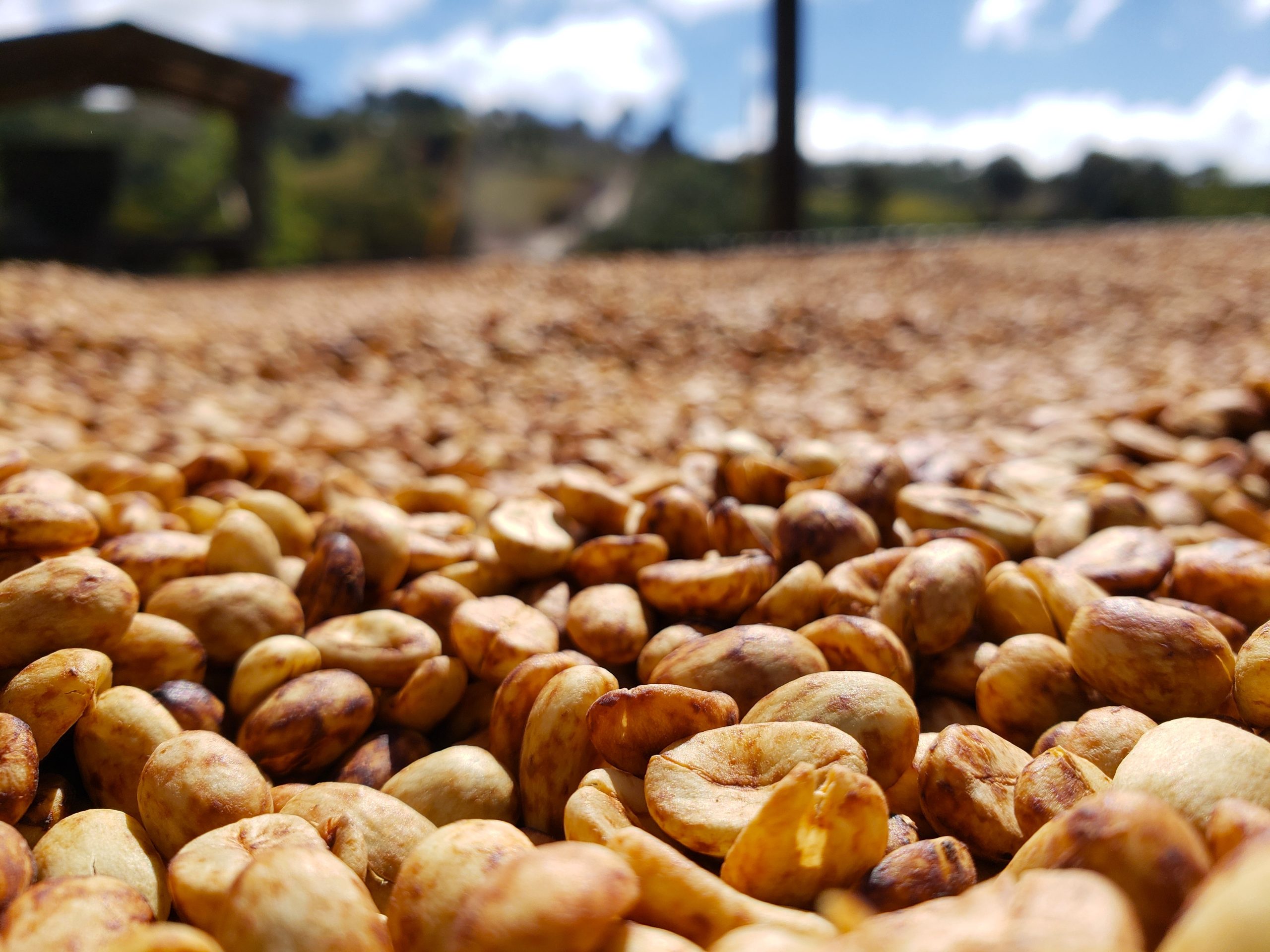Ethiopia Gedeb 1 Yellow Honey Chelchele – Lot 012 – 30840 – GrainPro Bags – SPOT SHANGHAI
Position Spot
Bags 0
Warehouses Shanghai
Please Note This coffee landed more than 8 months ago.
Check out our Guide to Ethiopian Coffee Grades
Out of stock
About this coffee
Grower
Smallholder farmers organized around the Banko Chelchele processing site
Altitude
1945 – 1970 masl
Variety
Indigenous landraces and heirloom cultivars
Soil
Vertisol
Region
Banko Chelchele community, Gedeb District, Gedeo Zone, Southern Nations, Nationalities, and Peoples’ Region, Ethiopia
Process
Honey process and dried on raised beds
Harvest
October - January
Certification
Conventional
Coffee Background
“Ethiopia honey process” are three words that have almost never in history been said together. But here they are. A subtle honey process microlot from one of southern Ethiopia’s most famous communities: Banko Chelchele, part of the greater Gedeb district, which is known for its gifted processing climate and exquisite naturals. This lot was created by Tracon Trading, an independent exporter and one of very few in Ethiopia offering coffees outside the standard washed or natural processing styles.
Gedeb and Its Coffee
The district of Gedeb takes up the south-eastern corner of Ethiopia’s Gedeo Zone—a narrow section of plateau dense with savvy farmers whose coffee is known as “Yirgacheffe”, after the zone’s most famous district. Gedeb, however, is a terroir, history, and community all its own that merits unique designation in our eyes. Coffees from this community, much closer to Guji Zone than the rest of Yirgacheffe, are often the most explosive cup profiles we see from anywhere in Ethiopia. Naturals tend to have perfume-like volatiles, and fully washed lots are often sparklingly clean and fruit candy-like in structure.
Gedeb is a remote but impressively industrious area for coffee production. Half of its territory is planted with coffee. Until recently coffee exports were allowed only limited channels and the vast majority of coffee grown in this area was sold by the Yirgacheffe Coffee Farmers Cooperative Union (YCFCU), consolidated under the wide-reaching Worka Cooperative, or sold anonymously through the Ethiopia Commodity Exchange (ECX). Today, however, in addition to the Worka Cooperative splitting into multiple smaller coops, there are increasing numbers of single farm owners and independent companies who are processing and exporting direct. Tracon Trading, the producer of this honey lot, is one of them. It is an exciting time to be buying in Gedeb, where we expect to see new layers of coffee continuously unfold as its local industry accelerates.
The city of Gedeb itself is a is a bustling outpost that links commerce between the Guji and Gedeo Zones, with an expansive network of processing stations who buy cherry from across zone borders. These processors (and we would agree) would argue their coffee profiles are not exactly Yirgacheffe, but something of their own. The communities surrounding Gedeb reach some of the highest growing elevations for coffee in the world and are a truly enchanting part of the long drive into Guji. Banko Chelchele is one of the communities East of Gedeb and includes cooperative members that are cooperative-affiliated, as well independent washing stations of various types, many of which, like this one, are simply named “Banko Chelchele” after the community itself.
Banko Chelchele Station and Processing
The Banko Chelchele washing station is owned and operated by Tracon Coffee, an independent exporter who manages 6 stations total in Gedeo. A few hundred individual smallholders contribute to Banko Chelchele, each averaging 1.6 hectares of coffee which typically shares the land with enset—a fruit-less relative of the banana tree whose pulp is scraped and packed into cakes, fermented underground, and then toasted as kocho, a staple starch in the area.
This particular lot received a unique twist on the traditional washed, bypassing fermentation altogether and going straight to raised beds to dry after depulping is complete, where it is constantly rotated for 2-3 weeks with the mucilage still clinging to the inner seed. Processors in Ethiopia are well-accustomed to carefully sundrying full naturals, so mucilage-heavy coffee parchment is not much of a challenge. Case in point: the resulting cup here is bright and syrupy with complex sweetness and a tea-like delicacy—a subtle twist on an expert traditional washed from this area.


